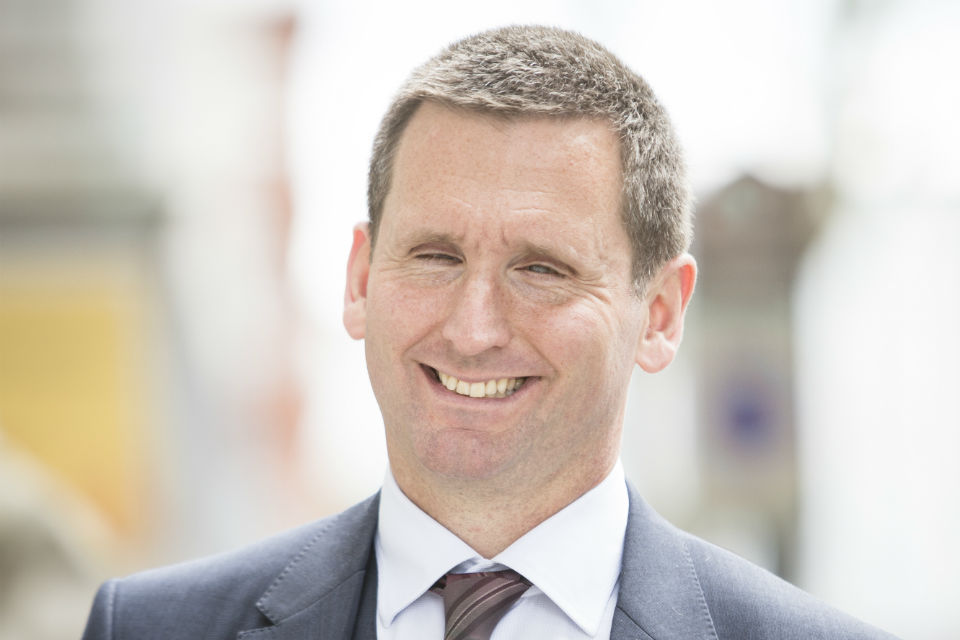
We have many brilliant businesses in the UK, world-beating brands, world-beating businesses – Rolls-Royce and the John Lewis Partnership, to name just two.
Although the former’s cars and engines are at the cutting edge of engineering excellence, and the latter’s customer service, commitment and penguins are festively perfect, only one organisation reaches right across our economy, our society and touches us in some of the most fundamental ways, from health to individual and national defence. Just one, and that’s the UK Civil Service.
That is why I’m excited to be involved – involved with the talent programme, which has the potential, not just to transform the service but, through the supply chain, the partnerships – the ‘customer contacts’, if you will – to change Britain.
Same dreams
How did inclusion start for me? Well, it arrived as my sight departed, age 14. At this point, I obviously knew how to read, how to write, how to get about, but I did not know how to do any of these things not being able to see. Yet my dreams remained the same: A-levels, Cambridge, the Great Britain swimming team. The dreams remained the same but, suddenly, without my eyesight, numerous barriers presented themselves – can’t go to a mainstream swim club, must go to a special school, and so on. Barriers constructed, by others, from the understandable fabric of care, concern, lack of comfort or confidence in how to act, how to enable what I dreamed.
So, it was down to me to provide the picture; to create the environment to enable stuff to happen.
And from this point there was never a need to think how do we include, why should we include, have we got enough of this or that? It was as clear as crystal – create the situations, the opportunities to enable all and you won't be guaranteed brilliant results, but you’ll be giving them the best possibility to be realised.
Culture of inclusion
It was this that drove our beliefs at London 2012. If we want to do not just good but great Olympic Games and Paralympic Games, then a core belief, baked in at bid time was the need to include, to get the brightest and the best, from every background, to come and join us and do the best work of their lives.
We had the mission, the strategy, the plan and all that good stuff. But what we had to have, what would make all the difference was the incubation and proliferation of the culture of inclusion. The inclusive culture to enable world-class performance from our colleagues, to match that required of the global gathering of athletes in the summer of 2012. A culture, a way of working covering it all.
One tiny example. When we put the fleet contract out to tender, one element, one question – don’t just tell us how you will make the fleet accessible for disabled passengers, tell us how you can make it accessible and inclusive for our disabled Games Makers and enable them to be drivers. Simple, straightforward, but never been done before.
Inclusion legacy
It was the culture that not only enabled the most inclusive Games, but which also secured so much of the legacy of inclusion, seen in so many examples – such as humps for accessing tube trains, new modules for built environment professionals, and thousands more.
None of this was easy. (If it had been, this blog would seem redundant.) Not easy, but doable. Doable because it’s not about political correctness, positive discrimination or any of that. It’s about ensuring a creative and competitive edge. An edge only to be gained, only maintainable, if an organisation is built to enable brilliance from the full range of backgrounds, the full plurality of perspectives.
And the prize? A modern Civil Service, a service that is transformed with the people, the places, the perspectives to reflect Britain, serve Britain and become an unquestionable beacon for a brighter, inclusive 21st-century Britain.
